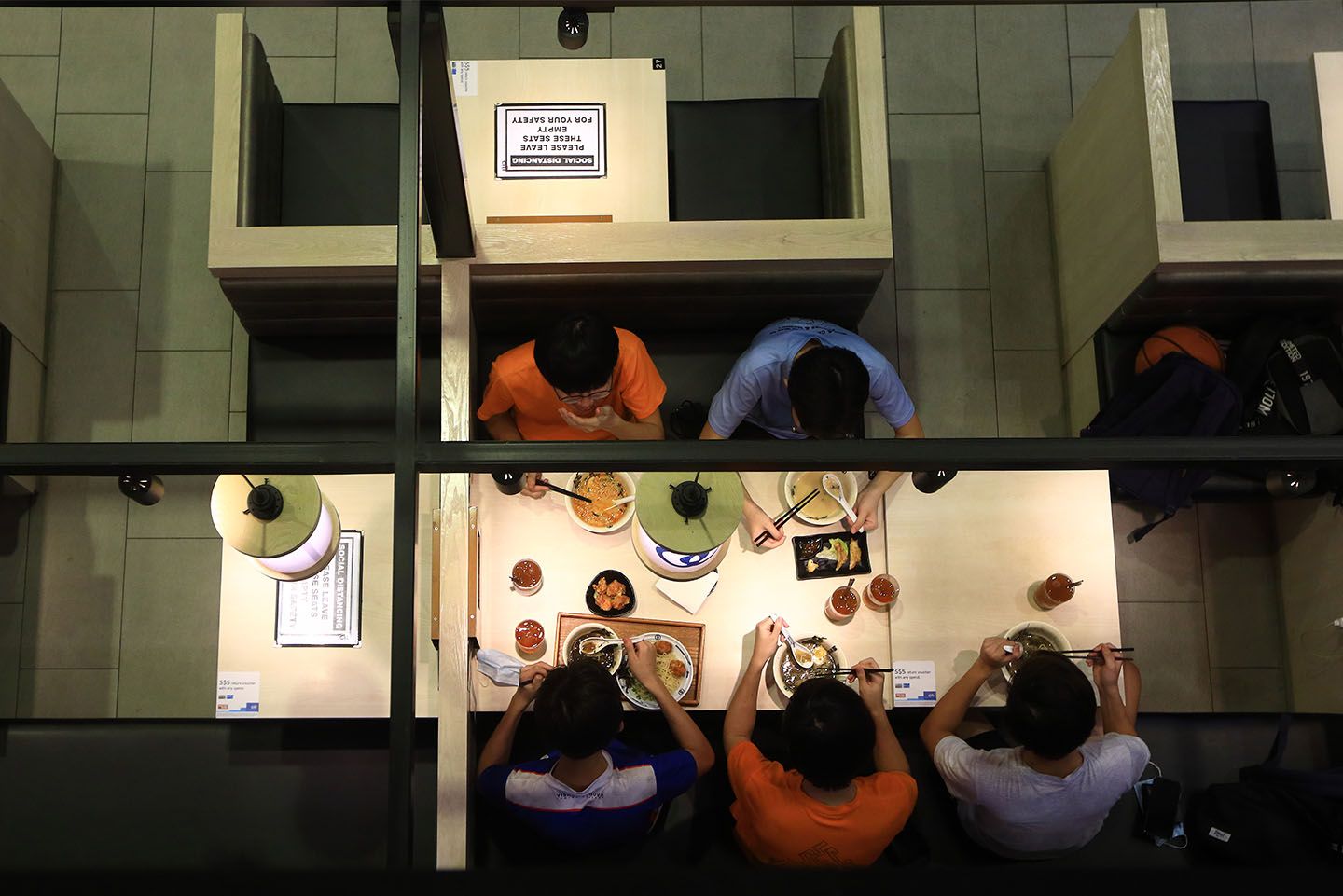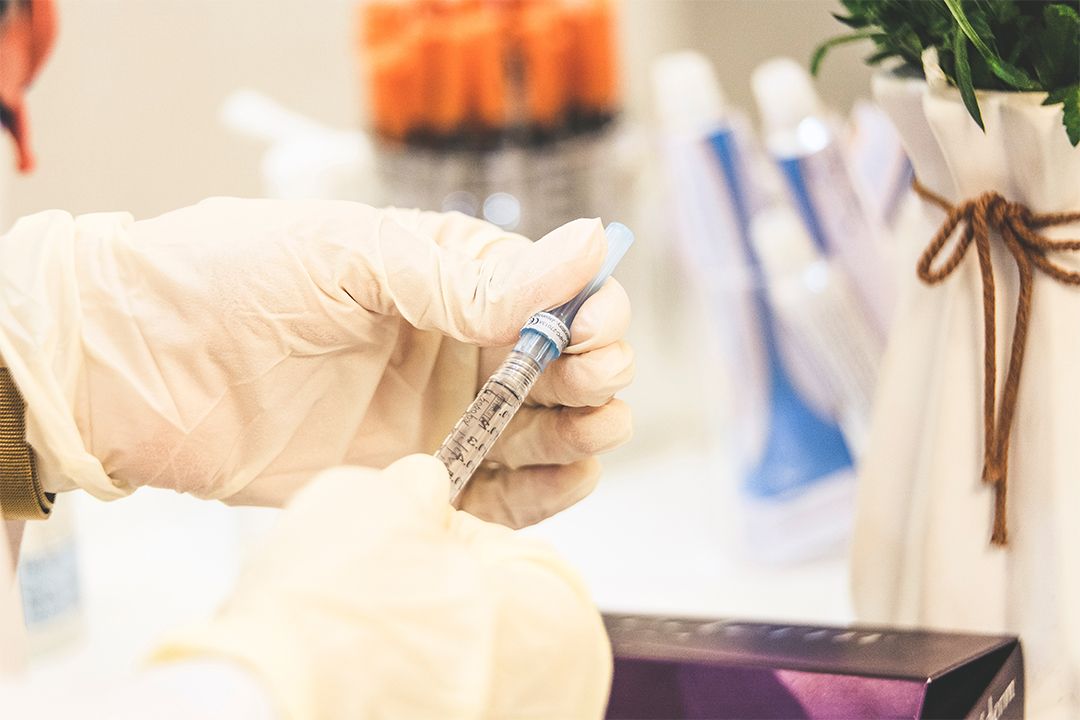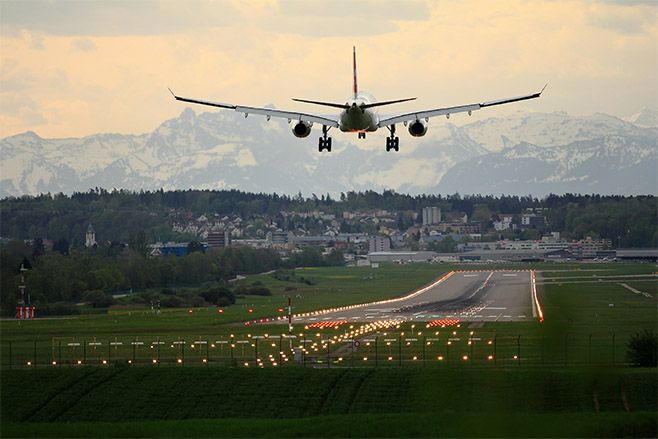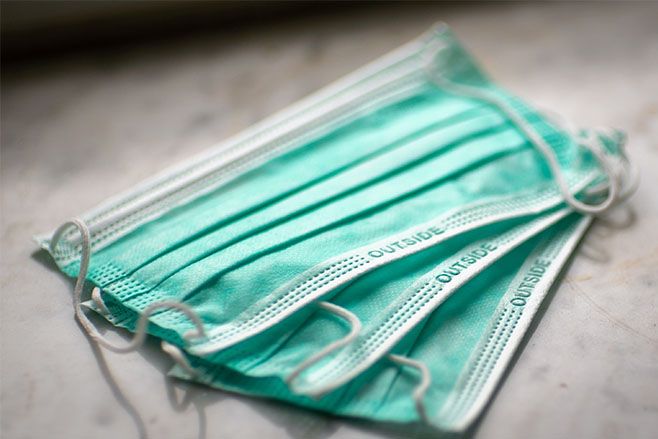Dining-in will be reduced back to groups of two while fully vaccinated individuals can continue to dine out in groups of five
This story was first published on June 25, 2021, and updated on July 17, 2021.
Covid-19 has been around for over a year and a half now and it is only normal for us to ask ourselves if this pandemic will ever end and what the future holds.
Related: Covid-19 May Eventually Become Endemic—Here’s What it Means
Unfortunately, it looks like Covid-19 remains a persistent global issue as it continues to mutate and spread. In fact, it was announced on July 16 that dining-in group sizes have been reduced to two from five for the unvaccinated due to the spike in community cases caused by the KTV lounge cluster.
F&B establishments “have the flexibility to decide” if they would like to accommodate groups of five, depending on their own operating model and whether they would be able to check on the status of customers that are dining in, said the Ministry of Health (MOH) in a press release on July 16.
A person is considered fully vaccinated two weeks after they have received two doses of the Pfizer-BioNTech/Comirnaty or Moderna vaccines, MOH added.
That said, Singapore has already started preparing for a situation whereby Covid-19 becomes endemic and when we all will have to live with Covid-19 as the new normal.
Singapore's Covid-19 multi-ministry task force has shared the outlines of what lies ahead in a post-pandemic world. Read on to find out more.
Related: Delta Plus: Everything You Need to Know About the New Covid-19 Variant
1. Social gatherings could return to semi-normal

If you are vaccinated, you may soon have gatherings in larger groups with fewer social distancing regulations. This may also apply to religious services, concerts, sporting events and weddings. Larger gatherings such as the National Day Parade or the New Year countdown may also be able to resume with more people vaccinated.
On July 12, restrictions on the number of people allowed to dine out together were increased from two to five. Unfortunately, on that same day, it was also revealed that a new cluster had cropped up from KTV lounges and clubs. In less than a week, there are already 120 cases linked to this cluster which started with a Vietnamese hostess.
To control this spread, on July 16, it was announced that dining-in at food and beverage establishments would be reduced to groups of two for those who are not fully vaccinated.
If you are fully vaccinated, meaning if you have received two doses of the Covid-19 vaccine and have waited two weeks for it to take effect, you can continue to dine-in in groups of five.
“This targeted approach will better protect those who are yet to be vaccinated while allowing those who have been fully vaccinated to continue with the current measures,” said Mr Gan, who is also Minister for Trade and Industry.
Unvaccinated people who can provide a negative pre-event Covid-19 test (PET) result, or, those who have recovered from Covid-19, can also dine out in groups of five.
Children below the ages of 12 will also be allowed to dine with members of the same household without the need for pre-event testing as they are currently not eligible for the vaccine programme.
“This whole group should not exceed five persons. If the children are not from the same household, then they should constitute not more than half the dine-in group,” said the Health Ministry.
Rules for wedding receptions will remain unchanged with groups of five per table being allowed without the need for everyone to be fully vaccinated.
“We acknowledge that wedding couples have faced significant uncertainties over the past few months. Hence, we will allow this key life event to continue at current numbers and PET provisions so that couples do not need to revise their wedding plans again,” said the Health Ministry.
Related: Phase 3 Heightened Alert: Cap of 5 People in Groups From June 14, Dining-in May Resume From June 21




